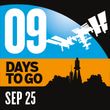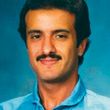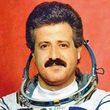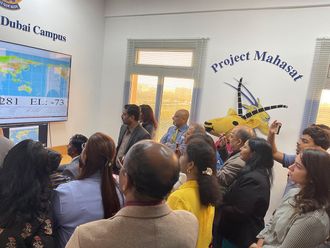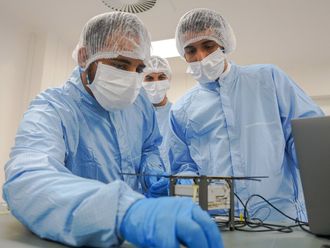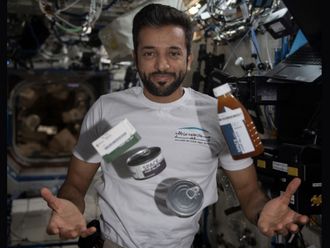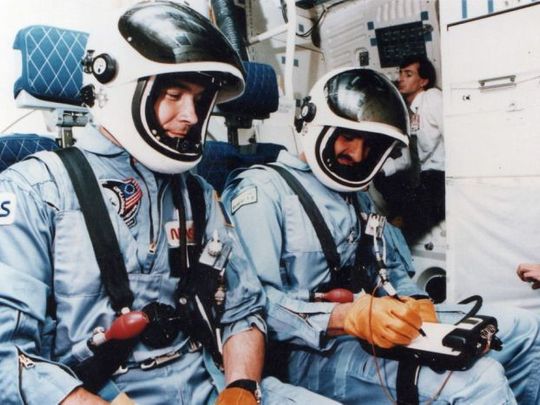
This is the second report in a 10-day countdown for the launch of UAE’s first man in space.
Dubai: After a 32-year-long hiatus, the Arab world will reach beyond the skies once again. And this time, it’s the UAE that will make the region proud and inspire young Arabs to dream to reach space once more.
The UAE’s first Emirati astronaut Hazza Al Mansoori’s first space flight to the International Space Station (ISS) on September 25 with prime crew Russian commander Oleg Skripochka and Nasa astronaut Jessica Meir is another milestone for the UAE’s young space programme.
On standby for the flight are Emirati astronaut Sultan Al Neyadi and his fellow reserve crews Russian commander Sergey Ryzhikov and Nasa astronaut Thomas Marshburn.
Al Mansoori will make history for being the first Emirati in space and the first Arab on the ISS. He will be among the privileged few from the Arab world — Prince Sultan Bin Salman Abdulaziz Al Saud from Saudi Arabia in 1985 and Muhammed Faris of Syria in 1987 — to reach space.
Al Mansoori’s maiden space voyage is the realisation of the dreams of many Arabs, among them is Hasan Al Hariri, CEO of the Dubai Astronomy Group (DAG). Al Hariri envisioned for the UAE to send its own astronaut to space way back in the Eighties at the height of the Prince Sultan’s space trip.
“At the time of the launch of Prince Sultan on the Space Shuttle mission, I remember it very well because I followed the news very eagerly on the TV,” Al Hariri recalled as he spoke to Gulf News.
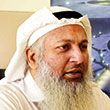
People in the Arab nations, … specifically in the Arabian Peninsula and in the UAE, people are looking eagerly to
this mission.
“It was such a proud moment for all of us to see that an Arab astronaut was going to space. It was a kind of a milestone for us because we didn’t have anything about [astronauts] before that. There was nothing that gave us hope that someday we could also contribute to this arena.”
Al Hariri was 16 years old then. In the weeks and days before June 17, 1985, he and his friends would meet up and dream.
“I was dreaming that one day I will also be an astronaut to go to space. I was with a group of friends and we would discuss how we could go to space. It was a beautiful discussion we were having and how we could be part of this whole space adventures and activities,” he said,
“From that time, I made up my mind that someday we would have to make space-oriented activities, groups and things like that.”
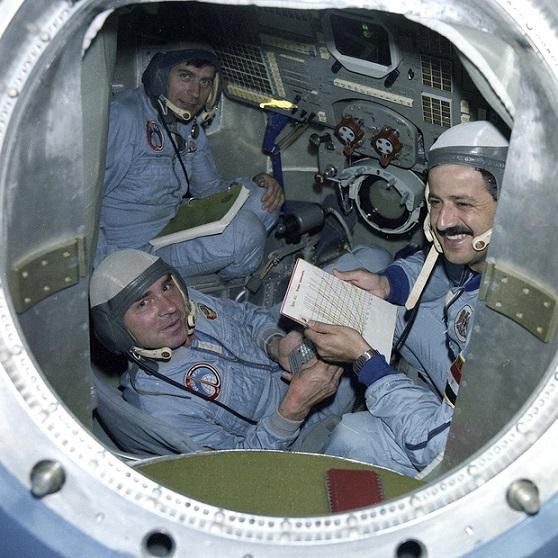
Back when space exploration was dominated by cosmonauts and astronauts from space powers like Russia and the US, an Arab’s inclusion was a welcome sight.
“Prince Sultan’s trip to space meant for me personally that the door is now going to open and we’re going to do something about space where we can have our own space programme. His mission was very symbolic for all the Arabs around the globe. It represented a kind of triumph for all of us,” he said.
Al Hariri met Prince Sultan and Faris years later after their space flights at Nasa and learned more from them. But he pondered at that time why the UAE didn’t have a space agency yet.
Now, the long wait is over. Finally in just a short period for a relatively young country, the UAE is headed to space.
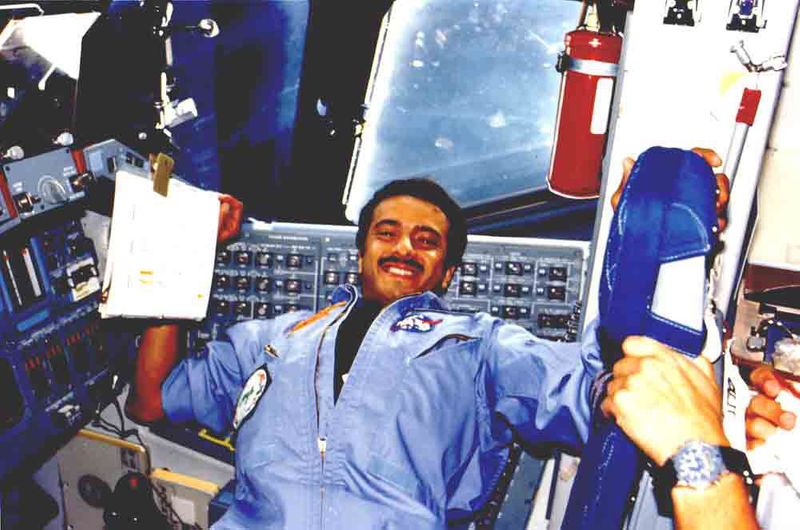
And its impact would be astronomical, Al Hariri said.
“Hazza’s ISS trip will impact the UAE a lot and it’s already impacting us even from now. People in the Arab nations, in the Middle East, specifically in the Arabian Peninsula and in the UAE, people are looking eagerly to this mission,” he said.
“It’s symbolic and a very strong statement or action which will affect the life of our children and our children’s children. It is now one of the programmes being launched by the UAE Space Agency to incubate new astronauts. Moving furthermore, they are now supporting the studies in this area. This was the main objective of our government — to create that strategy which will motivate everyone and people to work in this field and make a very good contribution in the future Insha’Allah.”
The Arabs who have been to space:
1. Prince Sultan Bin Salman Abdulaziz Al Saud, 63
Date of Launch to Space: June 17, 1985
Date of Return to Earth: June 24, 1985
Time in Space: 7 days, 1 hour, 38 minutes and 52 seconds
Prince Sultan became the first Arab, first Muslim and first royal in space in 1985. The former fighter pilot from the Royal Saudi Air Force was selected by Nasa as a payload specialist for the STS-51G Space Shuttle Mission, according to his bio.
He was part of a seven-member international crew that was launched to space 34 years ago to represent the Arab Satellite Communications Organisation (ArabSat) to deploy its satellite ArabSat-1B.
During his seven-day space mission, Prince Sultan conducted experiments from Saudi scientists namely an ionised gas experiment, and how water and oil would react when mixed in zero gravity, among others.
Prince Sultan also made an extra-long distance call with Saudi Arabia’s ruler at that time, King Fahd Bin Abdul Aziz. The Arab astronaut also conducted a tour inside the space shuttle in Arabic that was shown in television channels in the Middle East.
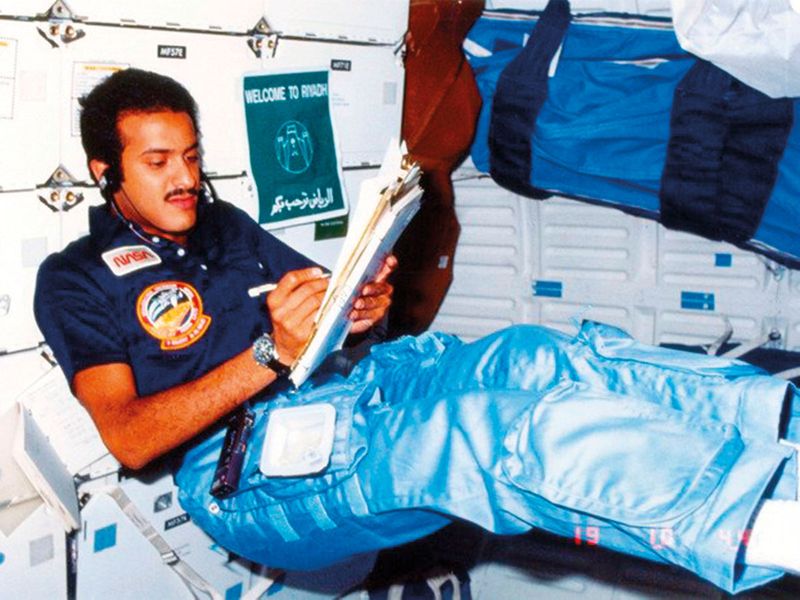
On his return to Saudi Arabia on July 5, Prince Sultan was given a hero’s welcome. He was conferred the nation’s highest honour, the collar of King Abdul Aziz Al Saud, in an elaborate ceremony in the King’s presence at the Taif airport. During his arrival, the crowd in high spirits chanted, ‘Sultan, Sultan, the harbinger of hope, the forerunner of triumph’.
Plans to launch more Saudi astronauts to space were held off six months later following the explosion of the space shuttle Challenger shortly after take-off on January 28, 1986. All seven astronauts on-board were killed.
Presently, Prince Sultan serves as the Chairman of the Board of Directors of the Saudi Space Commission.
2. Muhammed Faris, 68
Date of Launch to Space: July 22, 1987
Date of Return to Earth: July 30, 1987
Time in Space: 7 days, 23 hours, 4 minutes
Muhammed became the first Syrian in space in 1987 and the first Arab to be on-board the Mir, a Russian space station and predecessor of the International Space Station.
He made it to the cut after besting 59 Syrian candidates who trained at the Gagarin Cosmonaut Training Centre in Star City, Russia.
While in space, Muhammed, a military pilot, carried out scientific experiments not possible to be conducted on Earth. He also photographed his country from space.
With a new found passion, Muhammed pledged to share this learning and pursuit of science and astronomy with his compatriots, even encouraging more Syrians to aim to become astronauts, when he returned to earth.
On his return, he was received a national hero. He proposed to establish a national space science institute but his call was not heeded. He was then stationed at a college to teach aspiring pilots to fly jet fighters.
In August 2012, he defected from the Al Assad regime and travelled with his family to Turkey. He is now living in “Little Syria” in Turkey as a refugee, protester, rebel and campaigner of refugees’ rights.
Space Record holders:
Yuri Gagarin: First man in space on April 12, 1961; the Russian cosmonaut was in space for 108 minutes
Alan Shepard: first American in space on May 5, 1961
Valentina Tereshkova: First woman in space on June 16, 1963
Valery Polyakov: Russian cosmonaut who holds the record for the longest single space flight for 438 days on the Mir space station from January 1994 to March 1995
Nasa Station Astronaut Record Holders:
Peggy Whitson set the record for most cumulative days living and working in space by a Nasa astronaut at 665 days on September 2, 2017. She also holds the longest space flight for a woman (Nasa astronaut) at 288 days although Cristina Koch who is currently on the ISS might break it with 328 days when she returns on February 2020.
Whitson is followed by Jeff Williams for 534 days and Scott Kelly who stayed in space for a total of 520 days.
For the longest single space flight by a Nasa astronaut, the record was set by Scott Kelly for 340 days on October 29, 2015.
Source: Nasa, space.com


